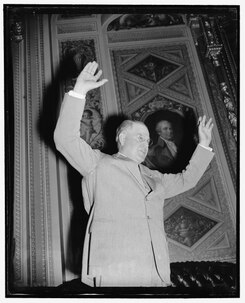The Filibuster: A Historical and Contemporary Overview

Introduction to the Filibuster
The filibuster is a political procedure in the United States Senate that allows one or more members to delay or prevent a vote on a proposal. Its importance is underscored by its capacity to shape legislation and influence the balance of power in the Senate. As discussions surrounding its reform or abolishment gain traction in political discourse, understanding the filibuster’s historical and contemporary roles becomes crucial for citizens and policymakers alike.
The Historical Context of the Filibuster
The term ‘filibuster’ is derived from the Dutch word ‘vrijbuiter’, meaning pirate. It became prominent in American legislative practices in the 19th century, but it was not until the mid-20th century that it became a regular feature of Senate proceedings. Initially, the filibuster allowed senators to speak for as long as they wished as long as they remained standing and did not leave the floor. The practice has evolved from lengthy speeches, like the famous 24-hour talk by Senator Strom Thurmond in 1957, to today’s use of a ‘silent’ filibuster, which merely requires the minority party to signal a potential filibuster to effectively delay a vote.
Current Discussions Around Reform
Recently, the issue of filibuster reform has become particularly urgent, especially with a deeply polarized Congress. Advocates for reform argue that the filibuster often stifles necessary legislation, particularly on critical issues such as climate change, voting rights, and healthcare. In 2021, the Democratic majority proposed changes to make it easier to pass legislation, while opponents, primarily from the Republican party, argue that removing the filibuster would undermine the Senate’s role in balancing majority rule with minority rights.
Conclusion: What Lies Ahead
The future of the filibuster remains uncertain as both parties navigate an increasingly complex political landscape. As scholars and analysts debate its merits and drawbacks, it is crucial for citizens to stay informed about how such legislative tools affect democratic processes. Potential changes to the filibuster could significantly alter the dynamics of legislative governance in the United States, and as such, the ongoing discussions will be pivotal in shaping future policy outcomes.








